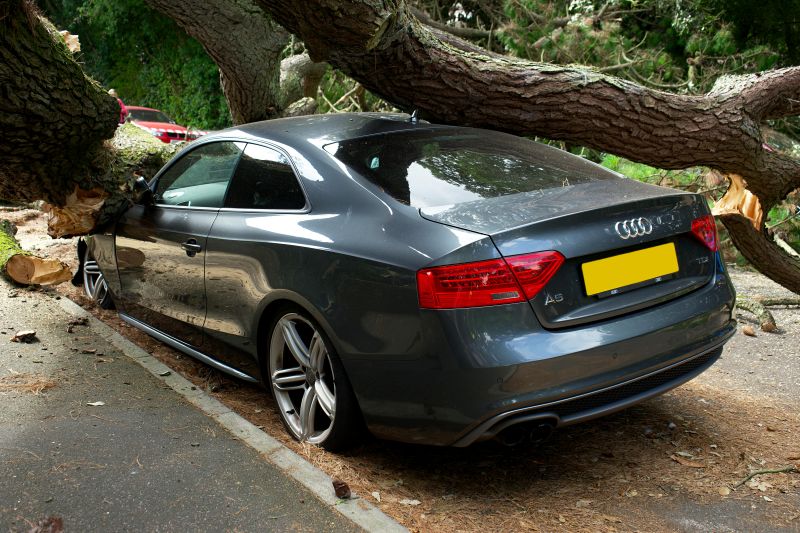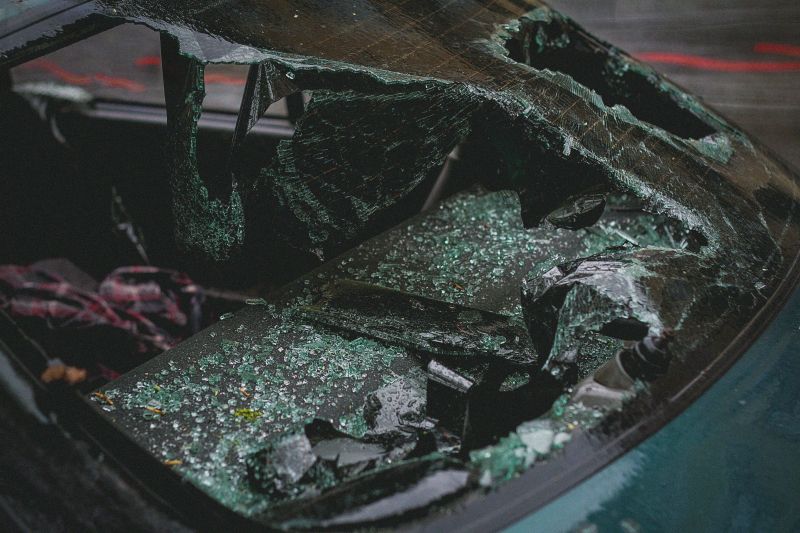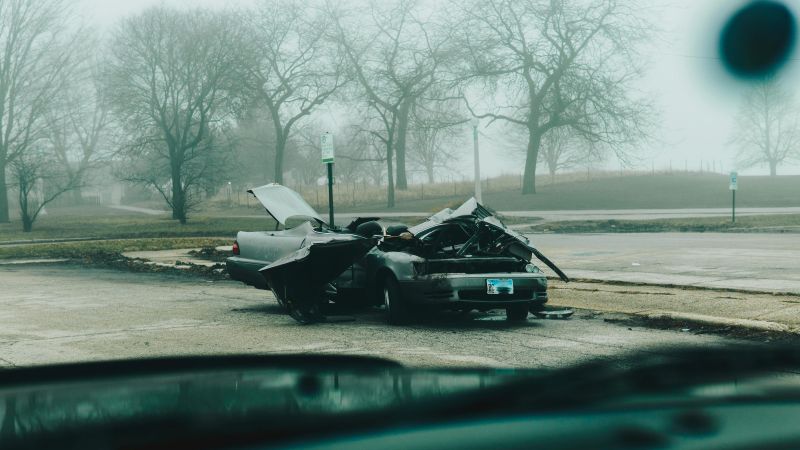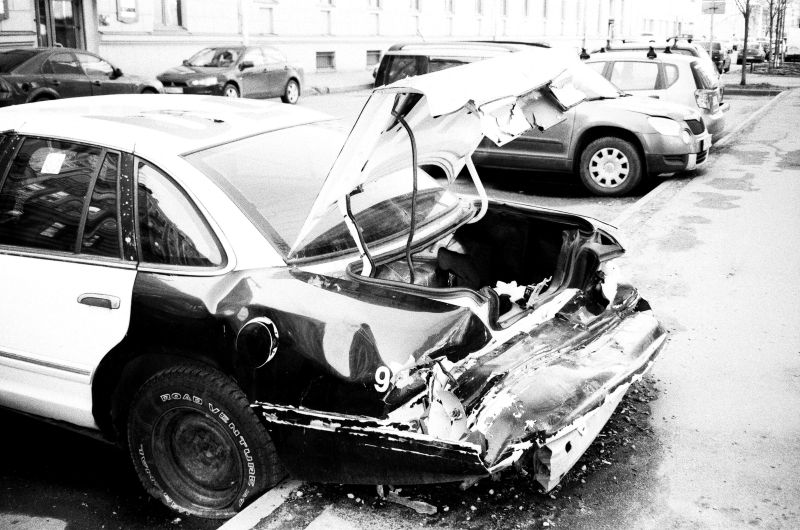It happened to my cousin last year—she got rear-ended on the freeway, ended up in the ER, and her first question wasn’t “Am I okay?” It was, “Does health insurance cover auto accidents?” Trust me, she’s not alone. Between auto insurance, health plans, and state laws, things get real confusing—fast. I’ve spent years writing about health policies, and I know how overwhelming it feels when you’re hurting, stressed, and unsure who’s paying the bill. In this guide, I’ll break it all down in plain English so you can feel confident before the unexpected happens. Let’s clear up the chaos—together.
The Short Answer: Yes, But It’s Complicated
So, does health insurance cover auto accidents? The short answer is yes—but not in the way most people think. After a crash, you might expect your health insurance to step in right away, especially if you’re rushed to the ER. But in many cases, your auto insurance is actually first in line, especially if you have something called MedPay or PIP (Personal Injury Protection).
Health insurance usually acts as backup. It can cover auto injuries like broken bones or whiplash, but only after your car insurance options are used up—or if you don’t have any at all. And here’s the twist: coverage rules can change depending on where you live. For example, folks in Michigan or New Jersey deal with totally different systems than someone in California.
In short, health insurance can help—but it’s not designed to be your first safety net after a crash. That’s why it’s so important to know what your policies actually say before life throws you a curveball.

What Usually Happens After a Car Crash
Okay—let’s walk through what really goes down after a car accident, especially when it comes to medical bills. Imagine this: You’re in a crash. Maybe it’s just a fender bender, or maybe you’re dealing with something more serious like a neck injury or broken ribs. The adrenaline is pumping, you’re trying to stay calm, and suddenly you’re in an ambulance or getting checked out in the ER.
Now here’s where the money stuff kicks in. Who pays for your treatment? Most people think their health insurance just steps in. But in reality, your auto insurance is usually the first to handle those bills—especially if you have MedPay or PIP (Personal Injury Protection) on your policy. These are made specifically for auto-related injuries like whiplash, back pain, or even internal damage. They’re designed to kick in before your regular health plan does.
So yes, health insurance can help cover car accidents, but it usually acts as the backup—not the starter. That’s why it’s super important to know what your auto policy includes. If you don’t have MedPay or PIP, your health insurance might step in earlier—but don’t expect it to be simple. Some insurers treat car crashes differently than other types of injuries, and you might need to prove it wasn’t your fault or that the other driver’s insurance isn’t covering it.
And one more thing: where you live really matters. If you’re in California, the process may be different than in New Jersey or Michigan, thanks to state-specific laws around liability and no-fault rules. We’ll dive into those later, but just know that the answer to “does health insurance cover road accidents” depends on your zip code as much as your coverage.
Bottom line? After a crash, expect your auto insurance to speak first, especially if you’ve got the right add-ons. Your health insurance might help—but only after it’s their turn in line.
Primary vs Secondary Coverage: Who Pays the Medical Bills First?
Here’s something most people don’t find out until after an accident: just because you have health insurance doesn’t mean it’s the first to cover your medical bills. Yep, it’s one of those “fine print” moments no one warns you about.
Let’s break it down like this: after a car crash, your auto insurance is usually considered the primary coverage, especially if you have MedPay or PIP (Personal Injury Protection). These are add-ons to your car insurance that step in right away to pay for auto-related injuries—think things like a cracked rib from the seatbelt or whiplash from a rear-end hit. They’re made to act fast so you don’t have to wait for other insurers to sort things out.
does health insurance cover auto accidents. That means it only kicks in after your auto insurance has paid what it’s supposed to. And even then, you might still have to deal with deductibles, co-pays, and pre-approvals. For example, if your MedPay covers $5,000 and your ER bill is $8,000, your health plan might pick up the remaining $3,000—assuming everything goes smoothly (and we both know that’s not always the case).
But wait—what if you don’t have MedPay or PIP? Or what if your injuries are way more expensive than what your auto policy can handle? In that case, your health insurance might step in sooner, but don’t be surprised if they ask lots of questions. Some plans even hold off on paying until they know whether another driver’s insurance will take responsibility. It’s like everyone’s trying to pass the bill to someone else.
And remember, this can look totally different depending on where you live. In places like New Jersey or Michigan—where no-fault laws and complex PIP rules apply—the order of who pays what gets even trickier. We’ll get into those details later, but it’s why so many people end up asking, “Does my health insurance cover auto accidents in Michigan?” The answer: yes, but it’s layered.
State-Specific Examples: How It Works in California, NJ, and Michigan
When it comes to car accidents, your location can change everything—like flipping a switch. I didn’t fully get this until my cousin moved from California to New Jersey. Same car, same insurance company, totally different rules. It blew our minds. So if you’ve ever wondered, “Does health insurance cover auto accidents in my state?”—you’re not alone. Let’s break it down by location, because trust me, where you live makes a big difference.
California: Health Insurance Takes a Back Seat—Usually
Let’s start with California. This state uses an “at-fault” system. That means whoever caused the accident is responsible for the bills. So if someone rear-ends you, their auto insurance should pay for your injuries.
But here’s the catch: that process takes time. So while the lawyers and adjusters argue, who pays your ER bill? That’s where MedPay (Medical Payments Coverage) or your health insurance steps in.
If you have MedPay on your car policy, it kicks in first. No questions asked. No fault required. It’s like a fast pass to treatment. If you don’t have it? Then yes, your health insurance might cover your auto injuries—but only after they figure out who should really pay.
So,does health insurance cover auto accidents? Yes, but it depends on what your auto policy includes. If you’ve got strong car coverage, your health plan takes a back seat. If not, your health insurance might be your only option—at least until the at-fault driver’s coverage kicks in

New Jersey: No-Fault, But Still Confusing
Now let’s hop over to New Jersey—my aunt lives there, and she found out the hard way that “no-fault” doesn’t mean “no stress.”
In NJ, every driver’s own PIP (Personal Injury Protection) covers their medical costs first, no matter who caused the accident. Yep, even if you were rear-ended at a stoplight, your own car insurance handles your hospital bills.
So, does health insurance cover car accidents in NJ? Not usually—not unless your PIP runs out or you’ve chosen a health insurance “option” on your auto policy (and most folks don’t even know they did this when signing up). Health insurance can act as backup, but only after your PIP is used up.
And here’s something wild—New Jersey lets you pick whether you want unlimited PIP or a limited amount like $15,000. If you picked the low option to save money, your health insurance may have to jump in sooner. But it also might come with more red tape.
Bottom line? In NJ, PIP talks first. Health insurance only shows up if it’s invited—and sometimes, not at all.
Michigan: The Wild West of Insurance Rules
Michigan deserves its own category. If you’ve ever Googled “does health insurance cover auto accidents?”—you probably walked away more confused than before. Don’t worry. You’re not alone.
Until recently, Michigan had unlimited PIP benefits for everyone. That meant your auto insurance covered all medical expenses, no matter what. Health insurance wasn’t even part of the conversation.
But in 2020, the law changed. Now, you can choose how much PIP coverage you want. And if you go with a lower limit, your health insurance may need to step up. But (here’s the twist) your health plan has to agree in writing to cover car accident injuries—and not all of them do.
So, does health insurance cover automobile accidents in Michigan? Sometimes. It depends on your PIP choice and your health plan’s fine print. It’s like building a puzzle—except the pieces keep moving.
If you’re in Michigan and thinking about cutting your PIP costs, call your health insurer first. Ask them directly: “Will you cover auto-related injuries?” If they say no, you could be stuck with bills nobody wants to pay.
What Reddit Users Are Saying (And Why It Matters)
If you’ve ever found yourself scrolling Reddit at 2 a.m. after a fender bender, wondering “Does health insurance cover auto accidents or am I totally screwed?”—you’re definitely not alone. In fact, Reddit is exactly where a lot of people turn when insurance agents don’t call back, bills start piling up, and the fine print starts looking like a foreign language.
And let me tell you—Reddit doesn’t hold back. It’s where real people share what actually happens after a crash, not just what the brochures or policy summaries say.
“My Auto Insurance Denied It—Now What?”
One common theme you’ll see over and over again in r/personalfinance and r/legaladvice is this: someone gets hurt in a car accident, files a claim with their auto insurance… and then boom—denial. That’s when the panic sets in. The question pops up fast: “does health insurance cover auto accidents?”
The answer? Sometimes yes—but not without a fight. One Redditor shared how they ended up in collections because both their auto and health insurers argued about who should pay. It wasn’t until they filed a complaint with the state insurance board that things moved forward.
Moral of the story? Keep records. Ask questions. And don’t be afraid to escalate when the blame game begins.
“New Jersey Confused Me So Bad, I Just Paid Out of Pocket”
If you’re wondering “Does health insurance cover car accidents in NJ?”—Reddit has thoughts. Lots of them.
New Jersey is a no-fault state, which sounds simple until it’s not. One user from r/newjersey said they didn’t realize they had selected “Health Insurance Primary” on their auto policy—until their health plan denied everything, saying, “We don’t cover car accident injuries.” They ended up paying thousands out of pocket for physical therapy.
This is a brutal but honest reminder: in NJ, if you choose the wrong box during signup, your health insurance might be first in line—but also might not help at all. Ouch.
“In Michigan? Double-Check Everything.”
When it comes to Reddit threads about Michigan, the most common vibe is confusion. People in r/Michigan constantly ask: “Does my health insurance cover auto accidents in Michigan now that PIP laws changed?”
One user said their health insurance flat-out refused to cover anything because their plan didn’t include auto-related injuries. Another said they were “saved” by unlimited PIP coverage—but only because they didn’t downgrade after the 2020 law changes.
So if you’re in Michigan, take Reddit’s advice seriously: Call your health insurer before an accident happens. Ask directly, “Do you cover auto injuries?” Don’t assume anything. The rules here aren’t just fine print—they’re make-or-break.
“Wish I Knew This Before the Ambulance Ride…”
Another big takeaway from Reddit: lots of people wish they knew the rules before they ended up in the back of an ambulance.
One user said they were hit while biking, taken to the ER, and weeks later learned their auto policy didn’t include MedPay or PIP. Their health insurance treated the injury like it was “questionable,” and they had to prove it was from a road accident. Sounds ridiculous, right? But it happens all the time.
If nothing else, Reddit teaches us this: medical billing after a car accident isn’t just about coverage—it’s about timing, paperwork, and who blinks first.
Why These Stories Matter
So why should you care what strangers on Reddit say? Because their stories show how messy real life can be—especially when policies don’t work like you expect. They also highlight why it’s so important to ask, “Does health insurance cover auto accidents in my state?” instead of assuming someone else will sort it out.
These aren’t just rants—they’re warnings. And when paired with expert advice, they become powerful lessons you can learn before things go sideways.
Bottom line? If you’re stuck in a coverage maze, Reddit might not have all the answers—but it’ll sure show you where the landmines are. Use it as a starting point, then back it up with real conversations with your insurer. Because when it comes to health insurance, car accidents, and road injuries, clarity is everything.

What to Do After an Accident (Step-by-Step Checklist)
So, the worst has happened — you’ve been in a car accident. Whether it’s a minor fender bender or a serious crash, your brain’s in overdrive. Who do you call? What do you say? And how do you make sure those towering medical bills don’t fall entirely on you?
Here’s a simple, stress-saving checklist to follow right after a crash, especially if you’re unsure whether health insurance or auto insurance will cover your medical care.
1. Call 911 and Get Medical Help
Even if you think you’re okay, always call emergency services. Some injuries — like concussions or internal bleeding — don’t show symptoms right away. Getting checked out not only protects your health but also creates an official medical record of the injury, which is key when filing any type of claim.
2. Document Everything
Take photos of the scene, your vehicle, and any visible injuries. Get the other driver’s information — license plate, insurance details, and contact info. If there are witnesses, grab their statements and contact info too. This helps establish fault and can back you up later when dealing with insurance.
3. Notify Your Auto Insurance Company
Even if you don’t plan on filing a claim right away, report the accident. This starts the paper trail and gets the claims process moving. If you have MedPay or PIP, ask how to access it. These cover your medical costs regardless of who’s at fault.
4. Talk to Your Health Insurance Provider
If your injuries are severe or if MedPay/PIP doesn’t cover everything, loop in your health insurer. Let them know this is an auto-related claim — they might ask for police reports, auto insurance denials, or proof that your car insurance benefits have been used up.
5. Save Every Bill, Record, and Claim Form
Keep everything — from ambulance bills to ER charges to physical therapy receipts. These are crucial for getting reimbursed and for proving what was paid by which insurance. You may need them months later when appealing a denial or filing with secondary insurance.
6. Watch for the Medical Lien
In some cases, hospitals will place a “medical lien” on your settlement. This means they expect to be paid back once you receive compensation from a lawsuit or insurance payout. If this happens, consider speaking to a personal injury attorney to avoid paying more than you should.
Conclusion: Know Your Coverage Before You Need It
Let me be real with you—navigating the maze of insurance after a car accident can feel like trying to solve a puzzle blindfolded. One moment you’re dealing with the shock of the crash, and the next, you’re buried under a mountain of paperwork, bills, and confusing terms like PIP, MedPay, and subrogation. It’s overwhelming, especially when you’re already dealing with pain and stress.
I remember when my cousin got rear-ended on the freeway. She ended up in the ER, and her first question wasn’t “Am I okay?” It was, “Does health insurance cover auto accidents?” Trust me, she’s not alone. Between auto insurance, health plans, and state laws, things get real confusing—fast.
Here’s the thing: health insurance can cover auto accidents, but it’s often not the first in line. Typically, your auto insurance—especially if you have MedPay or Personal Injury Protection (PIP)—takes the lead in covering medical expenses. Health insurance usually steps in as secondary coverage, picking up the tab after your auto insurance limits are exhausted.
But it’s not just about who pays first. The rules can vary significantly depending on where you live. For instance, in California, the at-fault driver’s insurance is primarily responsible, but delays can lead you to rely on your health insurance in the meantime. In New Jersey, a no-fault state, your own PIP coverage handles medical bills regardless of who caused the accident. Michigan’s system is even more complex, with recent reforms allowing drivers to choose their level of PIP coverage, which directly affects how and when health insurance comes into play.
So, what’s the takeaway here? Don’t wait until you’re in the middle of an insurance tug-of-war to understand your coverage. Take the time now to:
- Review your auto insurance policy: Check if you have MedPay or PIP and understand the limits.
- Understand your health insurance: Know what it covers regarding auto accidents and any exclusions that may apply. welliya.com
- Be aware of your state’s laws: Insurance regulations can vary widely, so it’s crucial to know how things work in your jurisdiction.
- Keep thorough records: In the event of an accident, document everything meticulously to avoid disputes between insurers.

